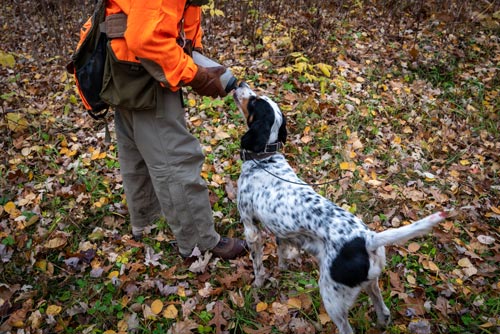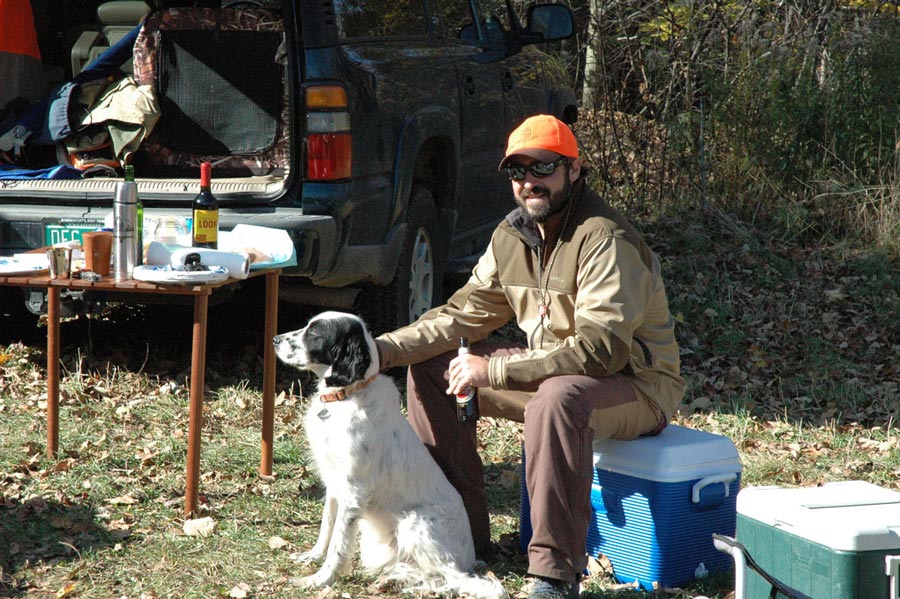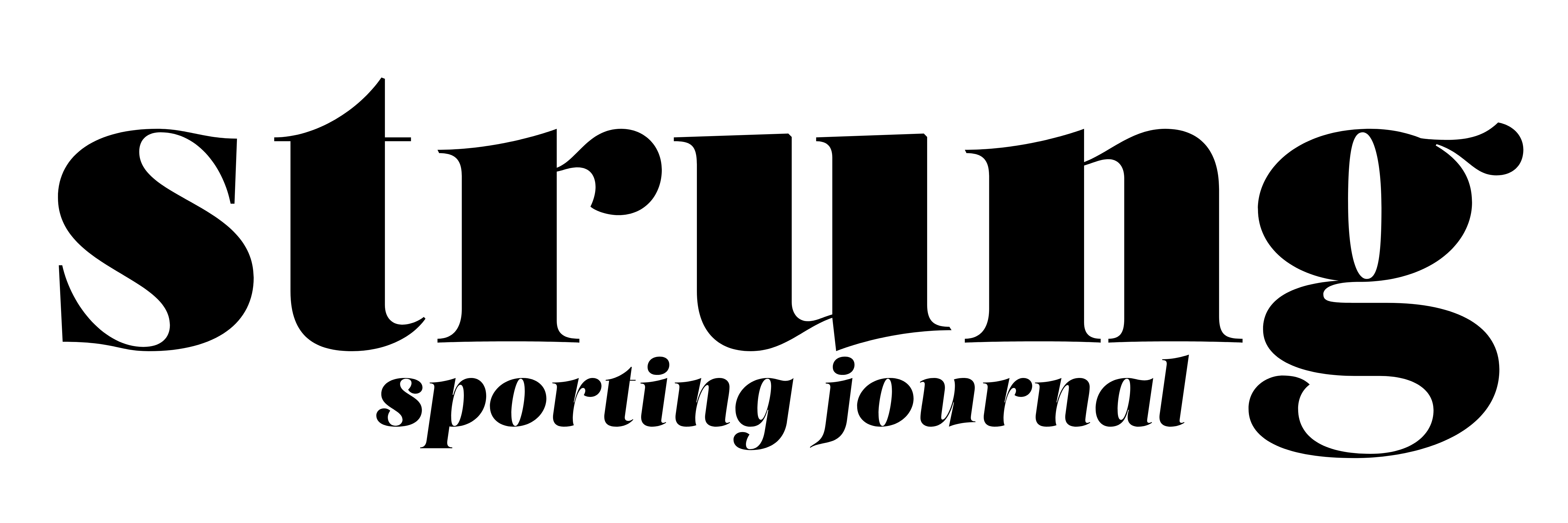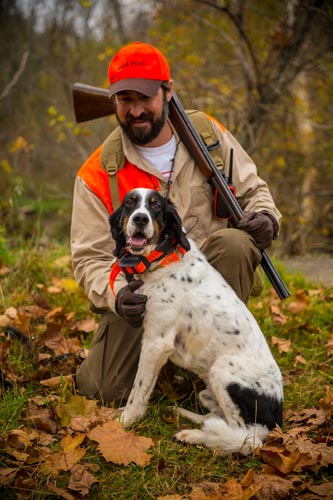Brett Ference’s Island of Misfit Dogs
by Tom Keer
Gambling seldom favors the meek, so to win big you’ve got to go hard or go home. Had I trusted my gut and gone big on American Pharoah, I’d be retired by now. I didn’t, and six years ago I wagered such a pittance that when Pharoah crossed the finish line and won the Kentucky Derby, my winnings were just shy of 50 bucks. I didn’t think he’d win; I knew he wouldn’t win. How could he? Pharoah was sired by a second-place Kentucky Derby-winning stallion and a mare that never raced. He had no pedigree.
But Pharoah won big. He went on to win the Preakness, and then the Belmont, and became only the 12th horse since 1919 to win the coveted Triple Crown. He then won the Breeder’s Cup Classic, which made him the first horse to win the Grand Slam of Thoroughbred racing. All that from a non-pedigreed horse.
We’re raised on those kinds of rags-to-riches stories, the ones where the underdog wins. There’s David and Goliath, Robin Hood, Wyatt Earp and Doc Holliday—even Tom Brady, the 199th draft pick who sat on the bench until Drew Bledsoe’s injury catapulted him into the driver’s seat. He’s now considered the Greatest of All Time. Each one overcame the impossible to win. Stories like that tell us that good does in fact triumph over evil. They rejuvenate our souls. When it comes to dogs, pedigrees tell us that an animal has been given a gift. How that gift is used is what dreams are made of. But those strong pedigrees matched with a bad attitude can easily become nightmares.
My friend Brett Ference collects dogs that no one wants. On his string, only one came from good lines, but take a look at his Vermont kennel and you’ll see bright eyes and cracking tails that aren’t indicative of their origin. Ference has never made a call to find a dog; they just sort of wind up with him. I should know—several years ago I placed one with him.
I learned about the setter dog the same way I learn of most good things: A friend of a friend gave me a call. “Do you know anyone looking for a started dog out of Legh Higgins’ Coronation Kennels?” That dog turned out to be the first pup of good breeding that Ference has owned. Higgins’ family has been in the setter breeding and training business for so long that his grandfather placed Cider and Tober with the late Corey Ford. You know, Corey Ford of Field & Stream’s Lower Forty column and author of 23 books and the classic story “The Road to Tinkhamtown”? Yeah, him.
I called up Legh.
“I hear you have a three-year old you need to place,” I said.
“I do,” Legh said. “I placed her as a puppy with a bird hunter, and she’s broke all the way through. She’s three and in perfect health. And she’s free to the new owner.”
We talked for a while, but one question nagged at me. “Why would anyone give away a broke dog of good lines when she’s knocking on the door of the prime time in her life?” I asked. “There’s gotta be a catch.”
“She’s a good dog, and there are no problems. If the new owner doesn’t like her they can send her back to me,” he reassured.
Ference came to mind because he and his wife Kristine had lost a dog in the spring and a second one a few months later. Yet placing that call was a gamble because I didn’t know if they’d be jubilant or if I was picking at the scab left by loss. Losing two dogs within a few months is tough, so I flipped a coin for the answer. It was heads, and I set down the phone.
Later in the day I belled my own string for a run. I watched all four cast through the woods, jump over deadfall, and wind their way down to the seep, tails cracking the whole way. There were a few bobs by the back edge of the grass, and a point was followed by a back and then another. The dogs seemed to tell me to quit screwing around and pick up the phone. I called Ference when I got back.
We chatted about sports, fishing, shotguns, and a whole bunch of other stuff, and when there was a pause in the conversation, I mentioned the setter dog up for adoption. He called me three days later with an answer, and if you’re into numerology then you’ve got a story: three for Trinity, three for resurrection—call it divine. And here we are, three years later, talking about the happiness that spread throughout his valley.
 Ference is a Pied Piper of unwanted, giveaway dogs. They come into his life, listen to his tune, and follow him everywhere. Every time he wants to pick up a pup with a pedigree, along comes another pup someone didn’t want. There is a page of adages on this topic, including “one man’s morsel is another man’s meal,” but Ference’s dogs aren’t morsels. They’re biddable, they hunt, and they perform. His dogs handle well in Vermont grouse covers, on Montana prairies, and on hallowed, Red Hills quail plantations. They are second rate in no regard other than perhaps their bloodlines.
Ference is a Pied Piper of unwanted, giveaway dogs. They come into his life, listen to his tune, and follow him everywhere. Every time he wants to pick up a pup with a pedigree, along comes another pup someone didn’t want. There is a page of adages on this topic, including “one man’s morsel is another man’s meal,” but Ference’s dogs aren’t morsels. They’re biddable, they hunt, and they perform. His dogs handle well in Vermont grouse covers, on Montana prairies, and on hallowed, Red Hills quail plantations. They are second rate in no regard other than perhaps their bloodlines.
“I was always a big game hunter, mostly for whitetail, elk, and mulies,” Ference says. “The first bird dog I hunted over was a quarter century ago when I was in college. That was in Montana, and my buddy had an English pointer named Huck. Huck ran big, he had style, and he had a great pedigree. He was fast, and he had a great nose and a head packed with birdsmarts. I always figured I’d have a string of dogs like him, but life just didn’t work out that way.”
Ference’s first bird dog was a drop. The drop wasn’t the result of an accidental lock but a half-cocked deliberate experiment, a planned breeding between a Brittany spaniel and an English setter. “I got this dog when he was about two years old,” he said. “He had dominant setter genes, and from looking at him you’d never know he had any Brittany genetics. The previous owners mostly hunted quail on their plantation, and he ran shorter than they preferred. I hunted over him, and he had a moderate range that was perfect for grouse and woodcock covers. I liked that he was cautious around birds, so I brought him home. I’m a sucker for Westerns so I named him Wyatt Earp, with Wyatt as his call name.”
Dogs are like potato chips, and since you can’t have just one, Ference picked up another: a five-year old in his prime. “A few years later, another dog came on the scene. He was a well-bred setter from good lines, but for some reason the owner didn’t really like him. He was broke, but after that training he spent most of his time in the dog run. At that point I was hell-bent on getting a puppy, but when I saw this overweight dog with rough teeth that the owners had kind of given up on I took him for a run. His range was big, he listened well, and he was happy to be out of the run. Given half a chance he’d make a nice dog, so I brought him home to show my wife. That surprise didn’t go over so well. I slept on the couch for three months.”
 “Because that setter had more speed and a bigger range than Wyatt, I wanted to run them as a brace. He needed a different name, so I called him Doc Holliday—call name Doc. At the time I lived in Wisconsin, so we were in the woods every day.”
“Because that setter had more speed and a bigger range than Wyatt, I wanted to run them as a brace. He needed a different name, so I called him Doc Holliday—call name Doc. At the time I lived in Wisconsin, so we were in the woods every day.”
Bonnie came from Legh Higgins, and her previous owner didn’t work her much. “One of the reasons the owners didn’t want her anymore was because she didn’t get along with their older dog. Bonnie runs differently than Wyatt and Doc, and her range is in between the two. Bonnie needed the same thing that all of my other dogs did, and that’s an opportunity to shine. I give them that, from training on spring woodcock to regular work and a long, aggressive hunting season. What they give me in return is immeasurable.”
One day Ference intends to own a dog with a stacked pedigree, but don’t bet on it. “If things line up for me to get a puppy with great genetics, then so be it. But the odds are that if there is a sad hunting dog somewhere in the world that crosses my path, I’ll bring him home. None of my dogs have been loved the way they should have been in their past lives, but who really is? Maybe that’s the biggest factor in my choices; I don’t know. All I know is that I’ve been lucky and blessed, and we’ll see what happens next.”
The late writer Thom Jones once said, “Dogs have a way of finding the people who need them, filling an emptiness we don’t even know we have.” When it comes to Brett Ference’s kennel, you would want to bet that it goes both ways.



